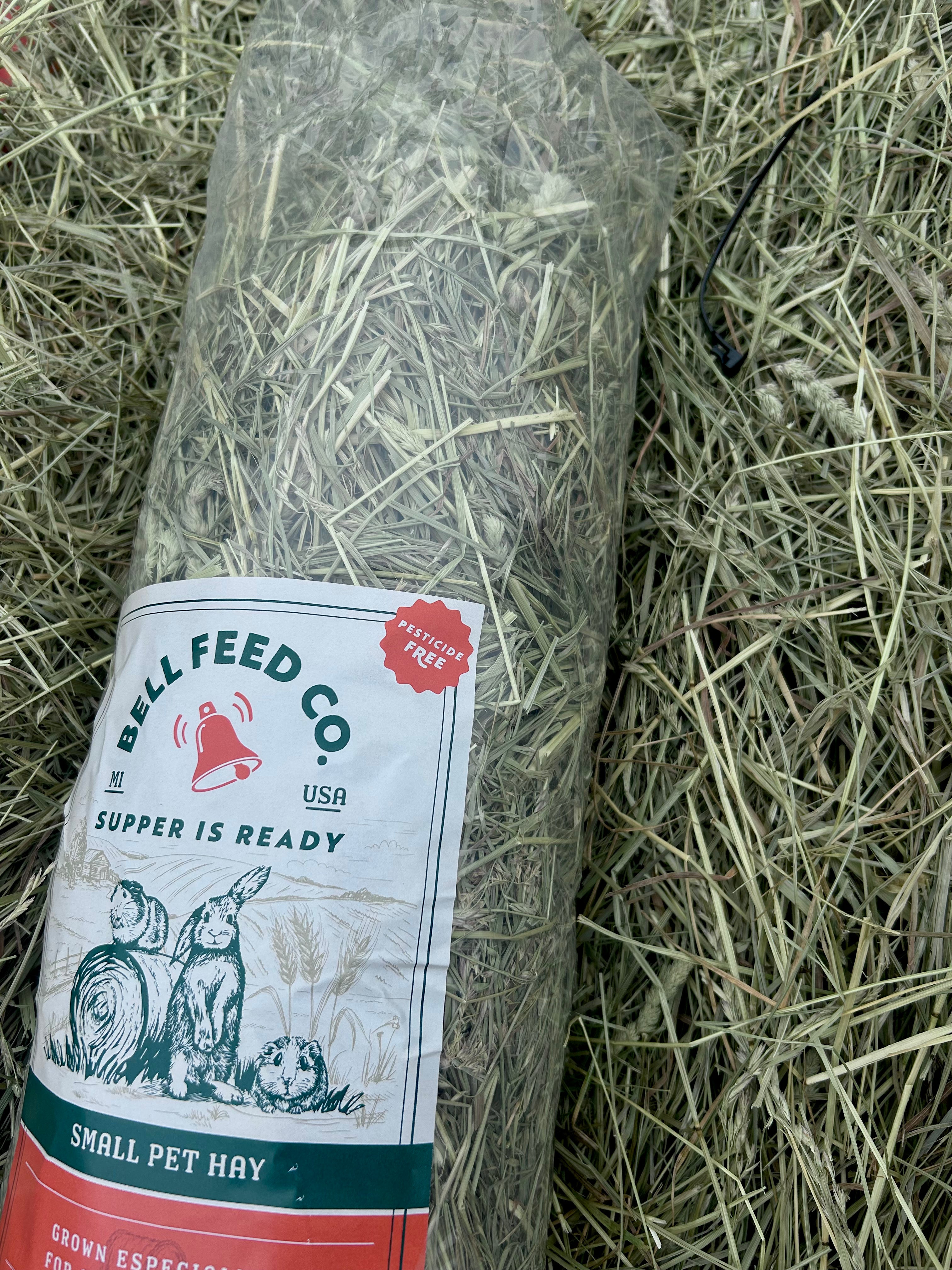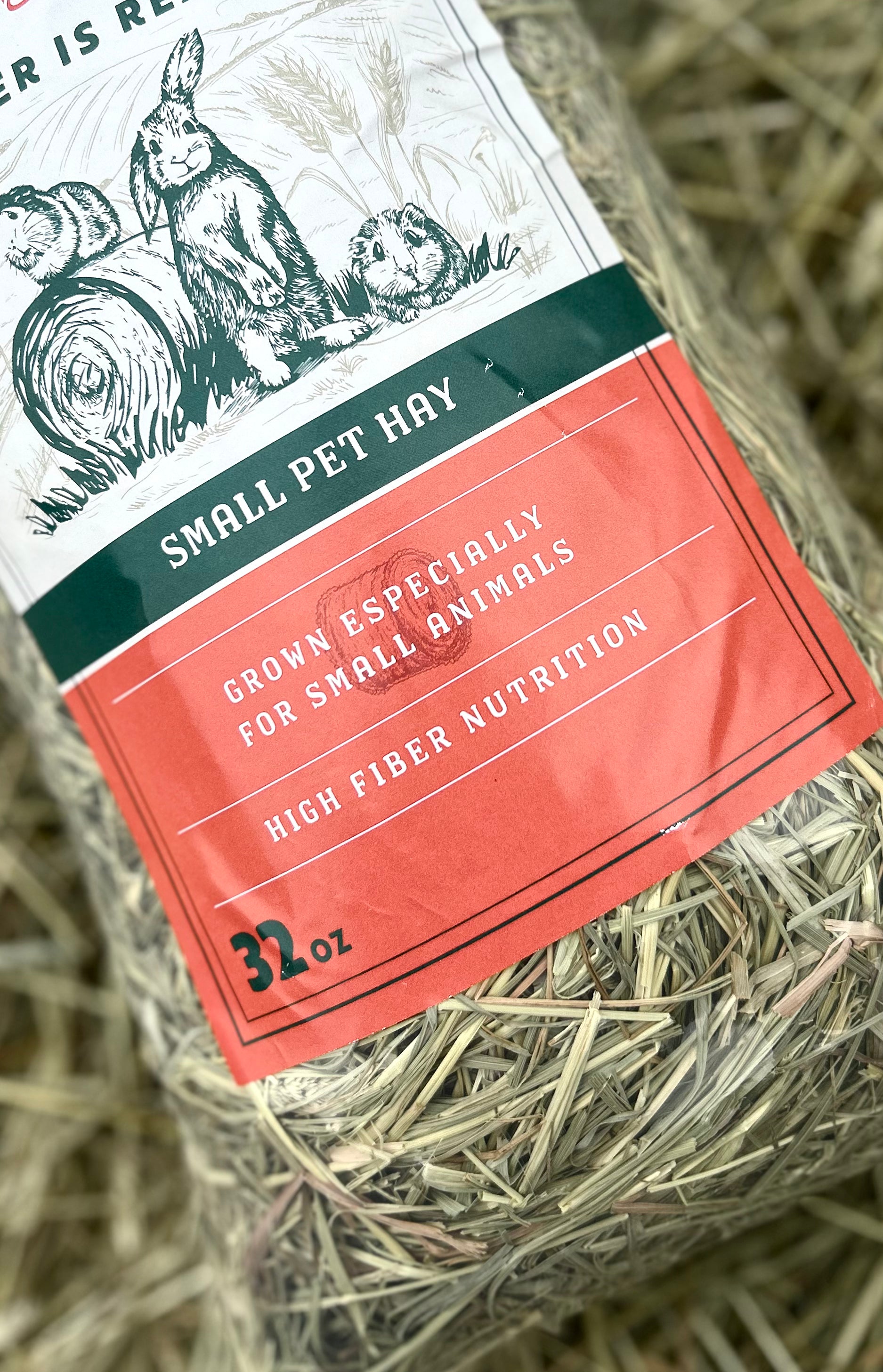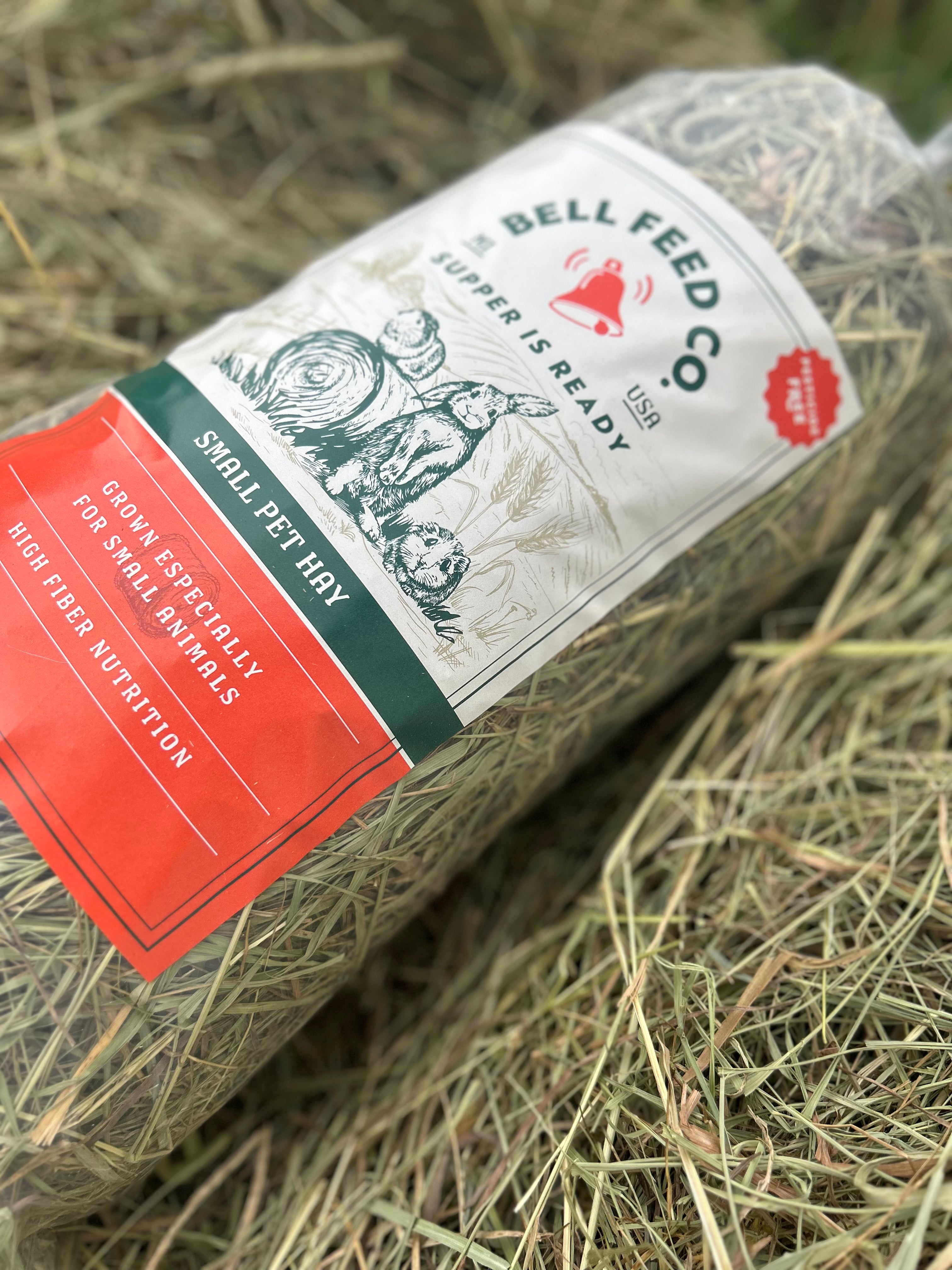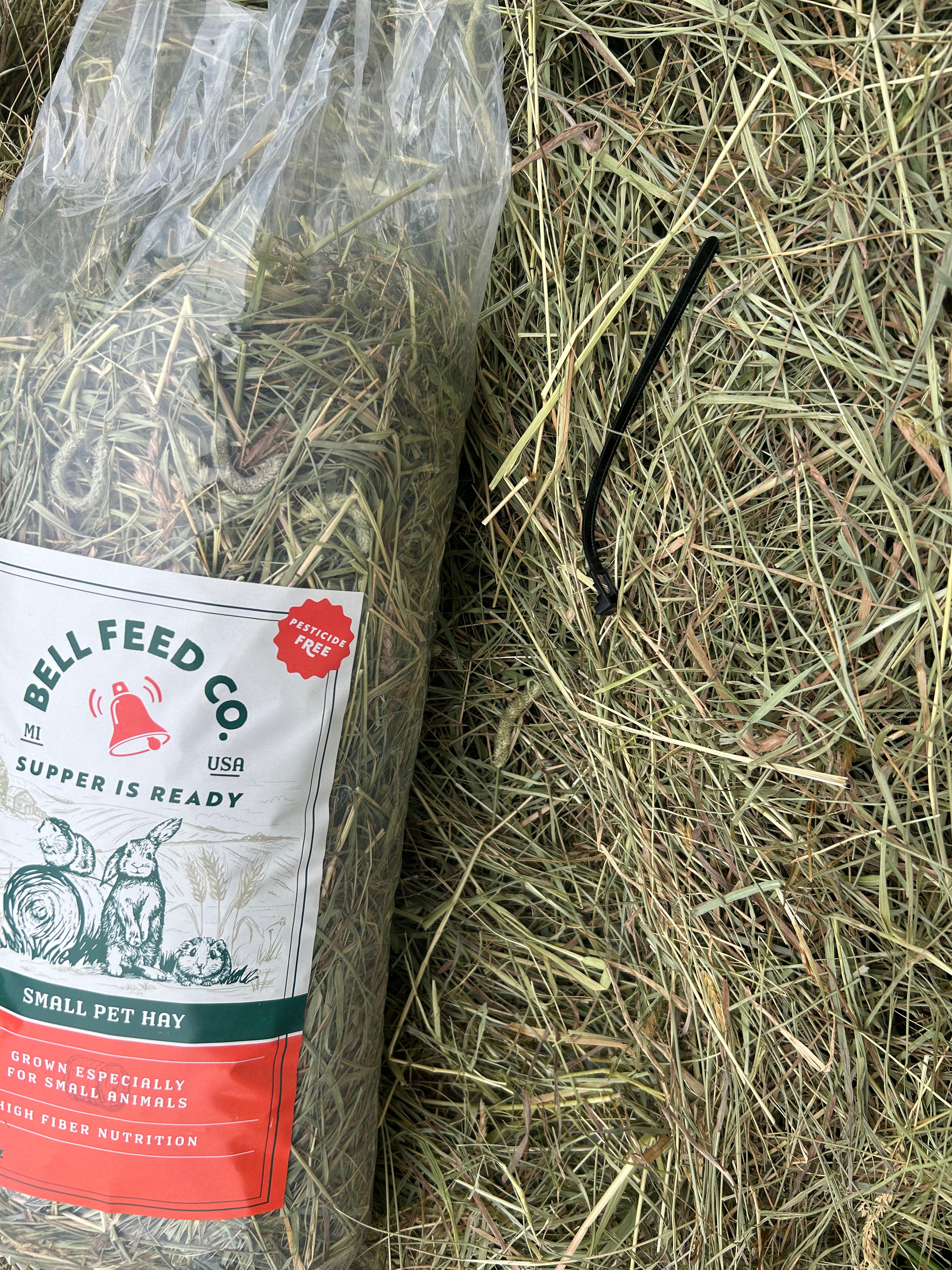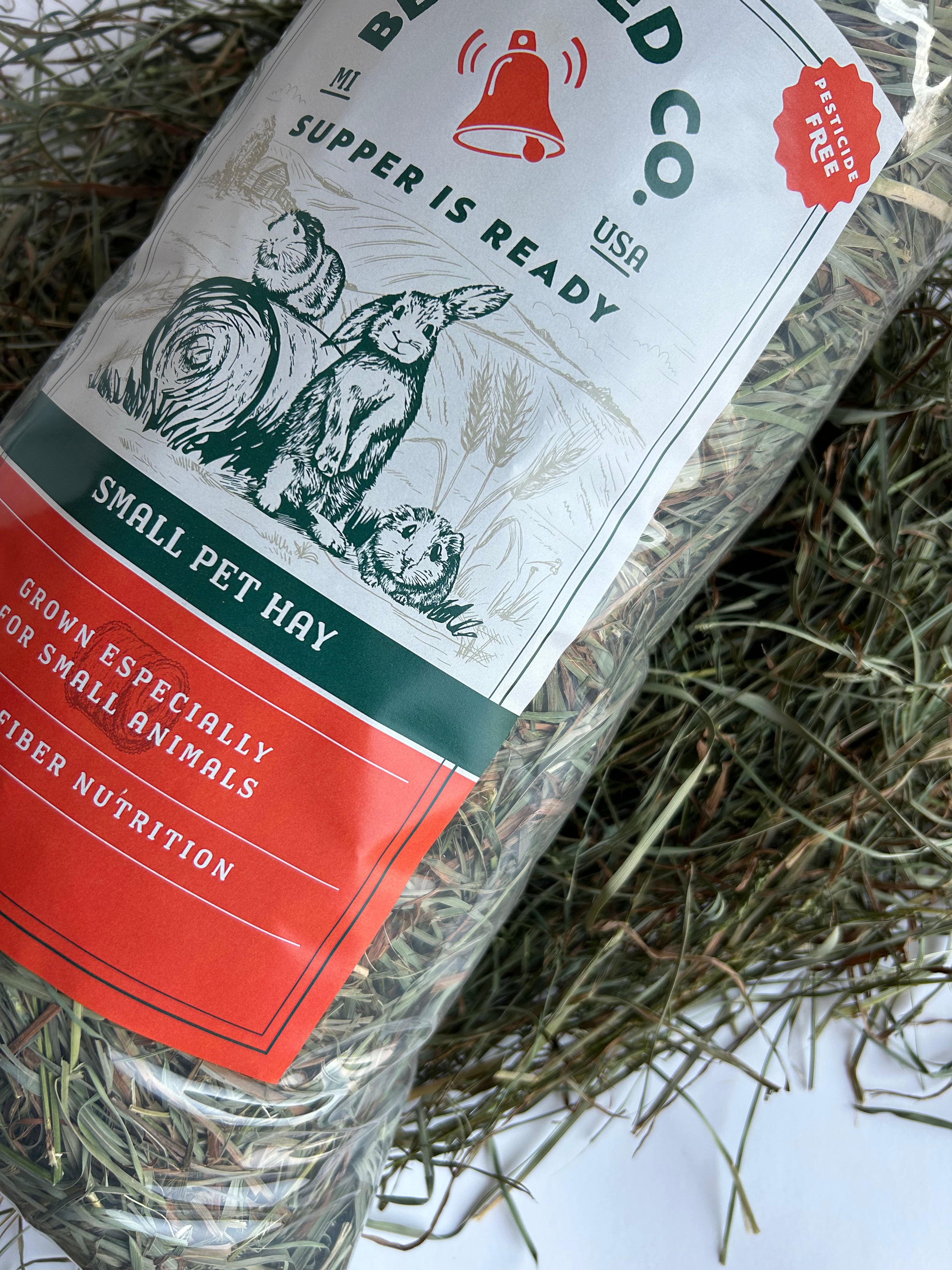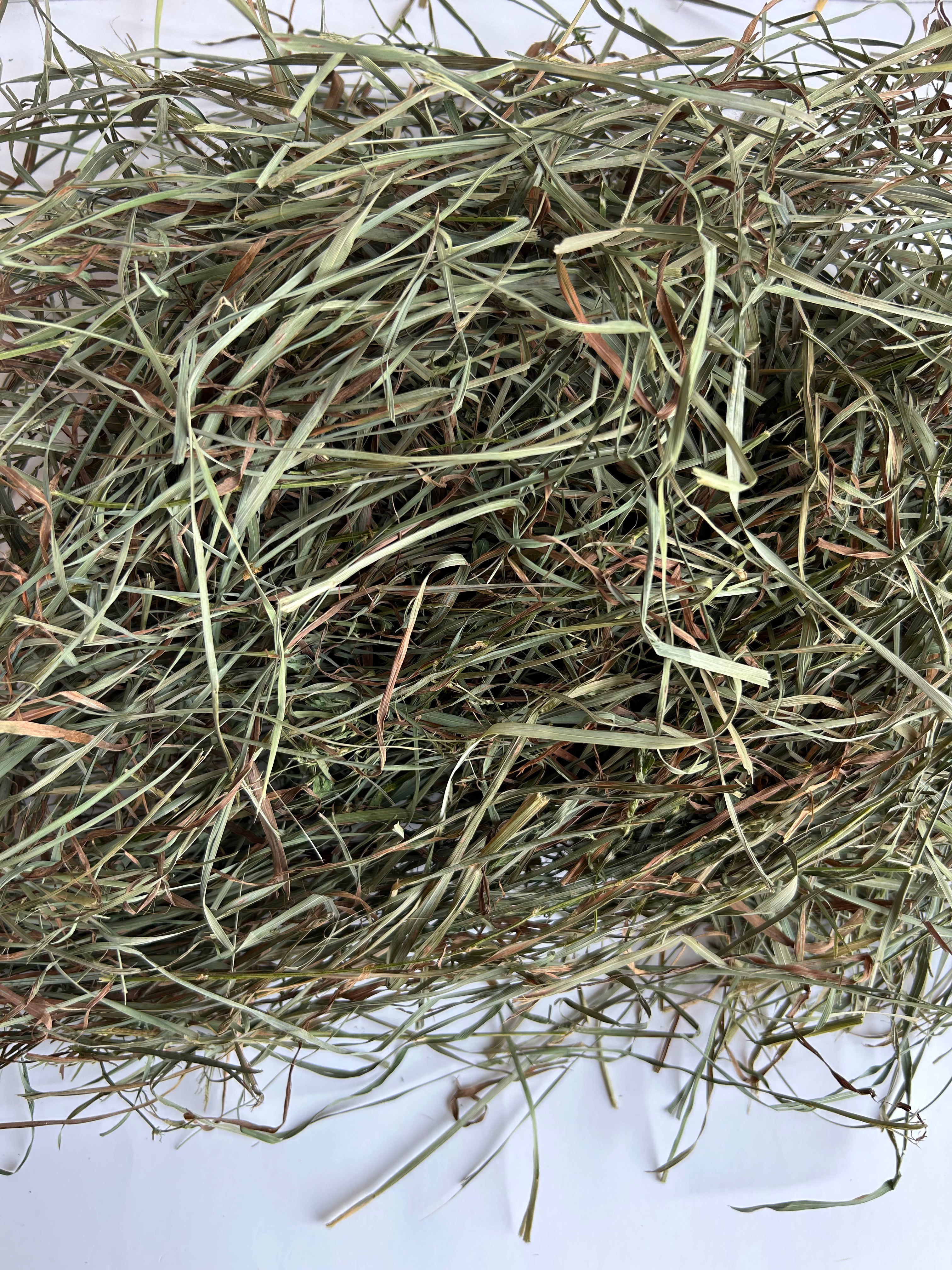
In the last post I talked about replanting our fields to produce hay better suited for small pets, I thought I would talk about what that means in this post a bit more.
Why should small pets incorporate hay into their diet?
Our beloved small pets benefit immensely from including hay in their diet for several crucial reasons: their dental health, digestive well-being, and mental stimulation.
Small pets possess unique teeth that continue to grow throughout their entire lives, much like our fingernails. Imagine what would happen if we neglected to trim our nails – they'd grow excessively long, potentially leading to breakage. Similarly, small pets' teeth require constant maintenance. Feeding them hay is an exceptional way to ensure their teeth remain at an appropriate length. The grinding action involved in chewing hay ensures their teeth naturally wear down, preventing overgrowth.
To support optimal digestion, small pets need a high-fiber diet, and hay is their ideal source. Hay's abundant fiber content promotes regular bowel movements, preventing the potentially life-threatening condition known as GI stasis. Healthy gut function can even result in feces with a golden-brown hue, often referred to as 'golden poops,' which is a reliable indicator of overall health. Moreover, hay contains trace amounts of moisture, contributing to our small pets' hydration.
Small pets are natural foragers. If released into the wild, their instincts drive them to search for food. It is crucial for their mental well-being that we provide them with hay, which offers the mental stimulation of foraging. This helps ward off boredom and keeps them engaged, even when we're not around."
What type of hay should small pets consume?
As we've previously discussed, small pets rely on a hay rich in fiber to maintain their digestive health. The ideal choice to fulfill this requirement is grass hay, which comes in various varieties, each offering distinct benefits. These options include Timothy Hay, Orchard Grass Hay, Meadow Hay, Bermuda Grass, Kentucky Bluegrass Hay, and Brome Grass Hay. Any of these can serve as an excellent addition to a small pet's diet. Combining several grass types can also ensure that your small pet receives a well-rounded array of essential nutrients to support their gut health.
When selecting hay for your small pet, it's paramount to prioritize high-quality options that are free from mold and dust. Thorough research is advised before settling on a specific hay variety, and opting for hay that has undergone lab testing to verify its nutritional content is an added advantage. Remember, a well-fed pet is a healthy pet, so the quest for a hay that your furry friend truly enjoys is of utmost importance!

